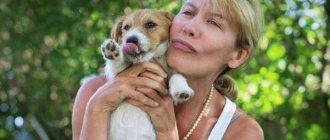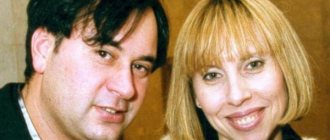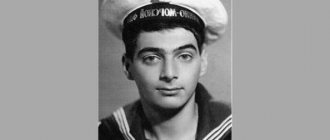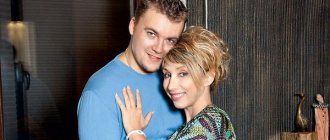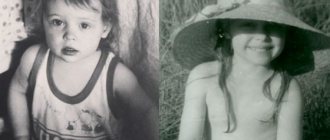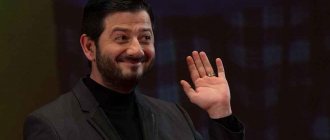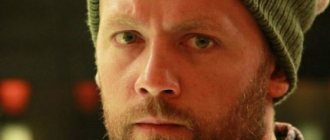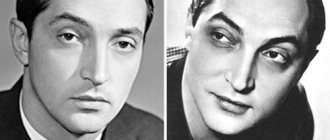A few words about Khodorkovsky
Once the richest man in the country, whose name is now known to every politically educated Russian, the informal leader of the Russian oil industry, a Jew by birth, Mikhail Yakovlevich Khodorkovsky, became especially widely known in 2003. This happened after the oligarch was sentenced to prison. The judiciary accused Khodorkovsky of the largest tax fraud in Russian history. Khodorkovsky himself, in response to the actions of the investigative authorities, stated that the authorities were persecuting him for political reasons.
A large-scale PR campaign was carried out in defense of Mikhail Yakovlevich Khodorkovsky, which in the first months of his arrest was active in defending his rights. However, just a year after the conviction, the initial scope of the campaign was significantly reduced.
Khodorkovsky was sentenced to nine years in prison (later reduced to eight years) and sent to a penal colony near the Siberian city of Krasnokamensk.
In 2010, Khodorkovsky was charged again with causing financial damage to Yukos in the amount of $30 billion and subsequently laundering more than half of this money. This time, the entrepreneur and his partner were sentenced to 14 years in prison. This case, however, did not receive such wide publicity among the public.
Khodorkovsky's wife spoke about her experiences to the German press
Mikhail Khodorkovsky has been in prison for more than one year, and journalists have not let the former oligarch be forgotten all this time. This time the Germans distinguished themselves. The wife of the former head of YUKOS, Inna Khodorkovskaya, agreed to give an interview to the well-known publication Suddeutsche Zeitung in Germany and Europe.
– Mrs. Khodorkovskaya, when was the last time you saw your husband? – The last time I was on a date at the Matrosskaya Tishina pre-trial detention center was in mid-March, taking my sons [twins Gleb and Ilya, who turn 11 in April] with me. Prisoners are legally allowed visits with family, which last from one to one and a half hours, once a month. Together with Misha’s parents, I use them all without exception.
– Are you following the second trial of Mikhail Khodorkovsky? I am not a politician or a political commentator. Almost everyone is already talking about how absurd the charges brought against him are and how far this court is from what is called a court in Europe. I have nothing to add to this - any sane person understands that my husband is being persecuted for political reasons, and anyone can be accused and imprisoned in Russia for anything. I come to the Khamovnichesky Court as often as I can, because this is another opportunity to see my husband.
– Does it make you feel better that your husband is now in prison in Moscow? On the one hand, it has become easier, on the other – more difficult. The best thing is that now it is close, and you don’t have to fly 6,000 km away and leave your children at home for a week. What’s worse is that for more than two years I’ve been talking to him for an hour a month through double glass, whereas in the Krasnokamensk colony I could spend three days inseparably with him once a quarter. – In 2006, you said that “it’s incredible how he holds up under these conditions.” Four years later, do you still think that the strength of spirit is not broken? – Let his enemies have no illusions. She just got stronger.
– In 2006 you said that your daily life revolved around prison affairs. Has this changed? – My life is in my husband and our three children. So yes, daily life has not changed since 2006, the only difference being that the children have grown up.
– How have you changed? – I have matured too. But seriously, from the outside it’s clearer, let the people who know me answer.
– Does life before your husband’s imprisonment still seem real to you? – It couldn’t be more real – this is our youth, the time when Misha gradually grew from a small entrepreneur into one of the most successful people in Russia, when our children were born. I don’t think that you need to drag the past along with you like a burden, all the time regretting that you once did or didn’t do something. Years are experience and wisdom; they are necessary to survive.
– Has people’s attitude towards you, your husband and his business changed in recent years? “I received many sympathetic letters and calls immediately after the arrest. Those people who gloated, as a rule, did so in public, on television and from high stands. Everyone knows them. Now, six and a half years later, there are even more letters of support. Every year on my birthday, I receive several hundred congratulations from complete strangers from all over the world. I think that for the most part people live by emotions, and often negative feelings (envy, hatred of those more successful, gloating) overpower. But, thank God, there is also reason. Therefore, over the years, when emotions fade, comprehension and analysis take their place. There are still people who could not or did not want to figure out who is who in this story. But time will put everything in its place, I’m sure. – In 2006, you said that there was no reason to blame your husband for not leaving the country on time. Do you still think so? – I still can’t imagine Mikhail leaving Russia then. This option was not even considered.
– Do you still consider yourself a patriot? – My homeland is not to blame for the fact that some people in it engage in cannibalism. I still love Russia, I still can’t stand cannibals.
– What new have you learned about the country in recent years? – I learned that the patience of my fellow citizens is much deeper than it seemed in 2003. It can be confused with apathy and indifference, but, in my opinion, it reveals age-old wisdom: riots and coups in Russia have never led to any good. Patience can also be confused with humility, but this will also be wrong. Most people are well aware of what is happening in the country and are watching how the current coordinate system is becoming obsolete. – In 2006, you said that Misha would not sit in prison forever. Have you lost hope in recent years, especially since the start of the second trial? “Such hope is not a thing, I cannot lose it so easily.” Either I have it in me or I don’t. And she will be until he finally comes out.
– Do you have plans for the day when your husband is released? – Our country is special because it is impossible to make any plans in it: neither for tomorrow, nor for the next year. This is common to all people living here, including me.
– Where do you want to live after your husband’s release? – I am more concerned about the question not “where”, but “with whom”. When the family is together, I will survive anywhere .
What warms the soul of an oil tycoon
The period of serving a criminal sentence for Mikhail Khodorkovsky ended on December 20, 2013. He will, without a doubt, remember this day for a long time, because it was then that he regained the much-desired freedom and had the opportunity to reunite with his family.
The businessman himself frankly notes in one of his interviews that the most difficult test for him during ten years in the colony was separation from his wife and children.
According to people familiar with Khodorkovsky before the Yukos story, Mikhail Yakovlevich, although he looked like a sophisticated and somewhat shy Jewish intellectual, was in fact a cruel, purposeful and quite powerful person, ready to lead the public masses. Despite this, the main place in his non-political life was given to his family.
Bank MENATEP
Khodorkovsky's income became so great that in 1989, Khodorkovsky and his associates Leonid Nevzlin and Alexey Golubovich became the founders of the first cooperative bank in Russia. Mikhail was elected chairman of the board of the MENATEP bank, which stood for “intersectoral scientific and technical programs,” and was practically the first to receive a license to operate from the State Bank of the USSR.
Mikhail Khodorkovsky and Leonid Nevzlin
This measure made it possible to serve not only the Ministry of Finance, but also the tax service, as well as Rosvooruzhenie. In the early 90s, after the collapse of the Soviet Union, MENATEP was one of the first to take part in schemes for the privatization of enterprises and companies.
The new industrial empire was growing - a separate organization, Rosprom, was created for it. Khodorkovsky recruited the best specialists to work in the new company. MENATEP privatized enterprises in the textile, food industry, construction and non-ferrous metallurgy, and mining companies.
Bank Menatep is the brainchild of Khodorkovsky
In 1995, Khodorkovsky became the owner of the second largest Russian oil company. Then the state was unable to repay the loans taken from MENATEP, and 45% of the company’s shares were put up for a loans-for-shares auction, like many other enterprises. Mikhail managed to purchase them, and after that another 33% were bought at investment auctions. The competitors' applications, which were registered by MENATEP Bank, were simply disqualified, and for only $309 million, 78% of the shares of the company with the largest oil reserves passed into the hands of Khodorkovsky and his five partners.
Vladislav Surkov, Leonid Nevzlin and Mikhail Khodorkovsky
The state's share was rapidly decreasing, and by the end of 1996 the bank became the owner of 90% of the shares of the oil company. Just a couple of years later, YUKOS capital grew to nine billion dollars. Mikhail Borisovich was no longer interested in the banking business; he switched to industrial development. “MENATEP” began to be run by hired employees who set up a branch in St. Petersburg, and then completely renamed it to “Trust”, having bought it from Khodorkovsky. During the default period of 1998, the bank failed to pay off its foreign currency loans and lost its license.
Elena and Inna
Khodorkovsky was married twice. Mikhail Yakovlevich decided to connect his life with his first wife, Elena Dobrovolskaya, during his student years. In 1985, Elena gave birth to a son, Pavel, but the marriage did not last long. Despite this, the ex-spouses still maintain a fairly warm and close relationship.
Khodorkovsky married for the second time in 1990. His chosen one this time was Inna Valentinovna Khodorkovskaya, at that time a junior employee of Menatep Bank.
Read below about how the life of Khodorkovsky’s second wife developed before her husband’s arrest, during it and today.
Personal life of Mikhail Khdorovsky
Mikhail got married for the first time in the 80s, while still a student. His wife was fellow student Elena Dobrovolskaya. They became close thanks to social and Komsomol activities at the institute.
The first wife of Mikhail Khodorkovsky - Elena Dobrovolskaya
However, the characters of Mikhail and Elena turned out to be completely different, so even the birth of their son Pavel in 1985 did not save their family. They divorced peacefully, without blaming each other for anything. Khodorkovsky never forgot about his first wife and son and always helped. Later, Mikhail provided his son with education abroad, after which Pavel settled in America and got married.
Pavel, Khodorkovsky's eldest son
Mikhail met his second wife, Inna, while still married to Elena. However, their acquaintance was exclusively work-related - the girl worked as a currency expert at the MENATEP bank. After Khodorkovsky’s divorce, the lovers began dating, and they married after the birth of their daughter Anastasia, in 1991.
Inna Khodorkovskaya
In 1999, the couple also had twin boys - Ilya and Gleb. During all 10 years of imprisonment, Inna Valentinovna waited and supported her husband. After a series of difficult events ended, Khodorkovsky settled with his family abroad and received a residence permit in Switzerland.
Younger sons - Ilya and Gleb
Life before meeting Khodorkovsky
What episodes from the biography of Inna Khodorkovskaya do we know? Unfortunately, not so much. Before meeting her husband, she was not a media personality, and now not much information related to Inna Khodorkovskaya’s personal life is stored on the Internet.
First of all, it is worth noting that the wife of the former oil tycoon was born in 1969 in Moscow. Inna Khodorkovskaya received her secondary education at a regular school in Medvedkovo. After graduation, she entered the Moscow Institute of Chemical Technology. Mendeleev. According to Inna Valentinovna herself, chemistry has been her favorite subject since her school years.
Simultaneously with her studies at the university, Inna Valentinovna’s career began: at the beginning of her career, she worked as an accountant in the Komsomol, where she kept records of Komsomol contributions.
Childhood, youth, family
Mikhail was born in 1963 into a Moscow family of engineers, Boris and Marina Khodorkovsky. Mikhail's parents were people from different social strata. Boris Moiseevich lost his father early and after military evacuation he lived with his mother and grandmother in the basement of a residential building. He often played homeless children, and sometimes he even had to beg on trains. Mikhail's mother, Marina Filippovna, was born into a wealthy family of a minister, and her family was noble.
Mikhail Khodorkovsky in childhood
However, different fates did not prevent Mikhail’s parents from meeting and falling in love with each other. After the wedding, they settled in a communal apartment, and at the time of Misha’s birth they worked together at the Caliber precision measuring equipment plant.
The Khodorkovskys' communal neighbors were a crazy old man and his two children. Since her roommates were sick, Marina Filippovna was very afraid that little Misha would catch an infection from them. Mikhail also recalled that the family was often left without dinner - after neighbors sneezed next to pots and pans, their contents were thrown away.
Mikhail Khodorkovsky with his mother and grandmother
In 1971, the Khodorkovskys received a separate two-room apartment. Boris Moiseevich was soon appointed to the position of chief designer of the plant, and Marina Filippovna continued to work as a process engineer. After the family’s life had improved relatively, Mikhail’s parents wanted to have a second child, but they never did.
According to the memoirs of Marina Khodorkovskaya, even before school, her son learned to do everything on his own. He knew how to clean the floor and washed small things himself. In kindergarten, teachers jokingly called the boy director, since his leadership abilities were already evident there.
From the first grade, Misha knew that while his parents were at work, he had to be independent: return from school, open the door with the key hanging on a cord around his neck, heat up food, wash the dishes and sit down to do his homework. Studying was easy for him, and in high school Misha was even nicknamed “the theorist.” The teenager really liked chemical experiments, mathematics and sports. He practiced sambo and worked part-time where he could to earn pocket money and reagents for experiments he was conducting on his own.
Mikhail Khodorkovsky as a student
In 1981, after graduating from school, Khodorkovsky entered the institute, choosing a chemical and technological university - Moscow Chemical Technology Institute. Here he, a born leader, not only joined the Komsomol work, but also led a construction team and independently looked for work for the guys during the summer holidays in Siberia. Mikhail was considered one of the best and most promising students and planned to become a candidate of science. But times began to change, and with them the plans of graduate Mikhail Khodorkovsky changed - he became a teacher and deputy secretary of the Komsomol at the university, and soon entered the Georgy Plekhanov Institute of National Economy, from which he graduated with a degree in financier.
In 1987, Khodorkovsky began entrepreneurial activity. In parallel with his studies, he and his Komsomol comrades created an intersectoral center for scientific and technical youth creativity (NTTM). Using connections from the Komsomol activists, he managed to knock out a large sum of money for the purchase of computers.
Mikhail Khodorkovsky in his youth
Despite the fact that the center was designed to develop creative initiatives, under the leadership of Khodorkovsky its employees began to engage in the import of PCs and the resale of alcohol. Mikhail was also involved in the “cooking” of denim jackets, which were fashionable at that time. Khodorkovsky and his comrades were among the first to start cashing out large sums. It was during those times that the initial capital of the future oligarch was created.
Family life
As noted earlier, along with her studies at the university, Inna Valentinovna built a career. However, she never received a higher education. Already in April 1991, Mikhail and Anna Khodorkovsky had their first child, daughter Anastasia. After this, the couple officially registered the marriage (which became the second for Mikhail Yakovlevich).
Two years later, also in April, but already in 1999, there was an addition to the Khodorkovsky family - Inna Valentinovna gave her husband two twins - Gleb and Ilya. From that moment on, she left work and school and devoted all her free time to raising her children.
Eldest daughter Nastya
The Khodorkovskys’ eldest daughter studied at one of Moscow’s elite private gymnasium schools. The girl was brought to school every day, guarded throughout the school day, and then escorted home. The year her father was arrested, government officials came to the school and demanded to provide lists of all students. However, the director responded to this demand with a decisive refusal.
In 2008, Anastasia successfully graduated from school and entered the psychological faculty of the Russian State Humanitarian University. The parents urged their daughter to choose a more applied direction, but in the end they agreed with her opinion.
At the time of her father’s arrest, Anastasia was still in school. Nevertheless, she supported her father, regularly went to meetings with him and read all the articles that Mikhail Khodorkovsky wrote, even while in prison.
The director stole the girl from Khodorkovsky
Employees of Viktor Chernomyrdin's apparatus received millions of dollars
Prisoner of correctional colony No. 2 of the Voronezh region Igor USOV entered the office of the head of the detachment as if he had stepped onto the stage. He relaxedly plopped down on a chair, crossed his legs, and a moment later everyone felt that they had accidentally landed at a creative evening of some celebrity.
We learned by chance that a rare “bird” had settled within the walls of PKU IK-2. A video film competition about the life of the colony was announced between special institutions. In the “two” they began to look for someone who could cope. And then 66-year-old Igor Usov, convicted of fraud, offered his help. From the moment he appeared within these walls, this prisoner caused surprise: he asked to join a detachment with the worst conditions of detention. He explained: he wants to use his time behind bars with maximum benefit and gain experience. “Nowadays, not a single series can do without a prison,” Usov says knowledgeably. — Consider me on a creative business trip. I’ll go out and make an honest movie.
Just a song!
— I dreamed of being an actor, but I didn’t enter the theater school. He took up amateur activities. My voice began to emerge, I even starred in the program “Wider Circle”. They performed on the same stage with young Leshchenko. I was about to enter the conservatory, and then I received a summons to join the army. But I sang there too - in the song and dance ensemble of the Odessa Military District. Not a service, but a song. After the army I saw an advertisement: assistant sound engineers were hired for television. This is how my television career began. In 1975, he already worked as a sound engineer on the film “Hello, I’m your aunt!”, and made all the films produced by the creative association “Ekran”. The films are bad, by the way, except for “Aunt”. And at the same time I studied at the evening department of the Faculty of Journalism.
| The hero of the publication did what he loved while in the zone - making movies |
Goldmine
— When Gorbachev came to power, they allowed the creation of cooperatives. In 1985, I opened the KADR cooperative. There was a car depot near my office. I asked the director: “Do you want me to make a film about your base?” We agreed on 14 thousand rubles. He hired only a cameraman as an assistant, a friend of his who graduated from VGIK. It was done in a week, the film went off with a bang. And off we go. People received 140 - 200 rubles a month, and I have thousands of orders. After the car depot, there are millionaire collective farms, already 50 thousand rubles per film. Friends and acquaintances began asking me to work. I pay one 10 thousand, another 20 thousand, and a friend and deputy 45 thousand. I get 50 thousand myself. During the time that they worked with me, they all bought apartments, dachas, cars. After some time, there was turmoil behind me: a friend who begged me to take him to work began to be indignant at why I was paying him less than myself. I left them and created the LIK cooperative. I transferred all orders there. Without me, their office folded within two months.
Dogs instead of children
— While working on television, I saw a lovely 18-year-old girl. And I’m already 43! Fell in love. Got married. I bought a cooperative apartment, a dacha in the most luxurious area of the Moscow region. I came to the head of the local administration and said: “Let me make a film about you.” He asks: “How much?” I answer: “A plot in these places.” Agreed! Made a film. The head is delighted. I chose a luxurious place in one of the villages: on a hill, next to a pond, a mountain and huge three hundred-year-old poplars. Built a dacha. I had everything: diamonds, antiques, paintings. I’ve been living with my wife for 13 years, but she doesn’t want children. There are only dogs in the house. Maybe that's what drove us apart.
| Mikhail KHODORKOVSKY was known as an exemplary family man, but he did not let pretty secretaries pass by (pictured with his second wife Inna and one-year-old daughter Nastenka). Photo: RIA Novosti |
Go and negotiate
— In 1993, Viktor Chernomyrdin became chairman of the government. I hired Valentin Sergeev as press secretary; I knew him before. He pulls me up. He introduces me to Viktor Stepanovich, and they tell me: you will make films about the new Russia, raise the image. NTV is throwing mud at us, but we have nothing to oppose. Then my boss was sitting on Old Square, in Chernenko’s former office, 250 meters away. A huge hallway, four secretaries. My work looked like this. He called me and said: “Go to the Minister of Railways, Gennady Matveevich Fadeev.” I say: “I don’t know him.” - “What do you know? Go, that’s all.” I arrive, go to the office, and start carrying something there. An hour and a half later I come out with two contracts for 250 thousand dollars! It’s the same with other ministries. They told me to go and negotiate. I made an agreement. Then privatization began, it was necessary to seize as many enterprises as possible. And how to do it? Write a letter to Prime Minister Chernomyrdin and justify it. How to get a signature? This is for Sergeev, my boss. Not just like that, of course. I saw everyone in his office - from Vladislav Surkov to Mikhail Khodorkovsky.
Cowardly French
— The French came and said we want to make films together. Russia was in vogue then. We started with Stalin, everyone was making films about him then. I was a producer on the Russian side. Director: Igor Belyaev, laureate of State Prizes. The rest are French. We made a three-part film “Stalin. Man or devil? The French sold it to 140 countries. Then there was “Exodus” - about the mass exodus of Jews from Russia, “The Phantom from Red Square” - about Lenin. I was the first to be allowed into the Mausoleum to film how the scientists cleaned up Ilyich. I, a fool, didn’t even keep a copy for myself; the copyright was with the French. They made 35 films for French television. And the film “The Aral Sea” won the prize for best documentary film in Cannes. The French took it for themselves: the director was theirs, and the cameraman was mine, Roma Khrushch. They were afraid to fly in helicopters, but I agreed to film the sea from a helicopter. Roma filmed it. Then there was a wave of films about the leaders of the CIS countries. Money flowed like a river. Aliyev, Akaev, Nazarbayev, Niyazov. Artem Borovik wanted to film about Niyazov, but he refused. He was already the Sultan then, everyone just walked away from him.
| Valentin SERGEEV (on the right) knew exactly when to slip letters justifying privatization to his boss, Viktor CHERNOMYRDIN, for signature. Photo by Alexander MAKAROV |
I left my wife five cars
— My boss brought me to Khodorkovsky and said that I wanted to make the film “Oil of Russia.” Mikhail says go to Nevzlin. Had arrived. He asks: “How much will it cost?” I say: “80 thousand dollars.” He signed the agreement: “Where should I transfer the money? Just don’t make a film, don’t.” This is how they made money. Somehow I needed to draw up an agreement. Valentin Sergeev says: “Go to Irka.” And hovering around this secretary are the “Yukosites” - Nevzlin, Khodorkovsky and also First Deputy Minister of Finance of Russia Andrei Vavilov. I drove them away, approached her and realized that I could no longer move away. I made an agreement, as I remember now, for 87 thousand dollars and said: “I’m going to St. Petersburg today, you’re coming with me.” And she went. We were there for a week. The boss calls, vomits and rushes: “Where are you taking my secretary?!” We arrive and go to Sergeev. I open the door: about a hundred meters away there is a huge table, a green lamp, and from there my boss, like an icebreaker, approaches and yells at the whole office: “I forbade Nevzlin and Khodorkovsky to touch her, but where are you going?!” It turns out that he himself had designs on Irka. It turns out that I stole the girl from Khodorkovsky. I went to get married. He left everything to his first wife: five cars, a cooperative apartment, a dacha, diamonds, a collection of icons. Irka was 19. Her parents were against it, her father attacked me with his fists. At Mayakovka we rented an apartment in an actor’s house, and a year later my daughter was born. I went crazy with happiness. I took them around the world. I decided that I was Khodorkovsky, I was sitting on oil and could do anything. Wasted three million dollars!
I thought life was getting better
— Chechens come: “Can you make a film about Ramzan Kadyrov?” “Of course!” I answer. I am making an estimate for 5.5 million rubles. They looked: “This is not enough. Make it for 27 million. Is 11 enough for you? Give us the rest." 2010, I’m going to Chechnya. I fall in love with the republic, with the people. I was taken there by a man who came to see me at Mosfilm and introduced himself as an investigator for particularly important cases. He actually arranged all the meetings and I considered him quite powerful. With the chairman of parliament, with the head of television, with all the ministers. This turned out to be the fatal man in my life. And then we agreed on 24 films with an estimate of 48 million rubles. And 150 million rubles for feature films. I thought life was getting better! The last time I was in Chechnya was for eight months. Ramzan was supposed to return from Saudi Arabia, and I was firmly promised a meeting. While I was waiting, I was sent to the Caspian Sea to rest. It was as if they knew that I would go to jail. I returned to Moscow with nothing, and then this story happened.
| The first documentary film, made together with the French, was sold to 140 countries, and USOVA didn’t even have a copy left |
A friend suddenly appeared
— I had a friend, we’ve known each other for 40 years. In the 90s, he sold vodka and earned 20 thousand dollars per truck. And I came up with a legal business for him: selling bottled water, developed a project. It now provides all offices in Moscow. I reached an agreement with those who had artesian wells. All I needed was money (I didn’t have it then). We were returning from Chechnya, I heard on the radio that children were poisoned by “Royal Water”. I immediately called a friend, he explains: poisoning is bullshit, they opened a case for tax evasion, they want to squeeze out the business. The same investigator who took me to Chechnya volunteered to help, saying he had connections. A friend gave him an advance payment of 5 million rubles. And he doesn’t do anything. They swore and bickered, but then they finally agreed that Joseph would pay more. We meet at a Japanese restaurant. A friend says: “For the money, it’s in my pocket, put it in your bag.” I put it down, ten minutes later the riot police run in: “Hands on the table!” Joseph is taken away. I don’t even have any idea that this has anything to do with me. I’m defending my friend, but they tell me: “Joseph wrote a statement against you that you wanted to steal money from him, and found a fake man.” He thought I wanted to take his business away! I was tried for attempted fraud, given four years and sued for 300 thousand. In Butyrka I met one Chechen. He made inquiries about my “investigator” and said: “Stepanich, you ran into a professional swindler who has scammed a lot of people.” My wife and I divorced before this whole story. She was used to living luxuriously, but when I couldn’t live up to it, it was all over. But life goes on. I haven't changed at all, for example, I sing. In Butyrka, imagine, he gave real concerts. There is an old well there, where the windows of all the cells face. At seven in the evening I started singing, everyone applauded. There was a death row - this is the most grateful audience
Random materials
- Samoilova's son rarely visited his mother
- Utyasheva makes panicky statements under threat of trial
- The intimate life of Olerinskaya (“Londongrad”)
- Hemsworth: Jennifer Lawrence's breath stinks
- Malikov spoke about his relationship with Vetlitskaya
Subsequent
- The man who placed Yulian Semyonov’s widow in a mental hospital faces a prison term
- Scandalous divorce Snigir Yulia
- Basharov is getting married, and Loginov is thinking
- Love affairs of Alexey Batalov
- Bathing season of our stars
Previous
- Megan Fox is getting divorced
- Karina Koks is expecting her second child
- Ulyana Sergeenko is divorcing her oligarch husband
- Friske's pregnant sister lost her baby
- Jasmine's son celebrated birthday in the most expensive club in Monaco
Arrest of Mikhail Khodorkovsky
In October 2003, Mikhail Yakovlevich Khodorkovsky was arrested while flying on a private plane. He was charged with especially grand theft and tax evasion. The following month, the ex-millionaire left his post as head of the oil company, and in 2005 he and his business partner Platon Lebedev were found guilty under six articles of the Criminal Code of the Russian Federation and sentenced to nine years in prison. Later, another charge was added to this, according to which both entrepreneurs were supposed to be released only in 2020.
Political activity
Back in 2003, while in a pre-trial detention center, Khodorkovsky wrote a long article entitled “Left Turn,” which shook up civil society.
Thanks to her, Mikhail began to be considered the country's main political prisoner. Then several books were published, written by Khodorkovsky during his stay in prison. In them, he reflected on changes in Russian society under different scenarios. After his release, he repeatedly stated that he would engage in social activities, in particular, to promote the release of political prisoners in Russia. In 2014, Mikhail was invited as a peacekeeper to Kyiv. He spoke on Maidan criticizing the Russian authorities and in support of Ukrainians defending their independence. Khodorkovsky also tried to travel to Donetsk, where the protests began, but the armed men did not let him through. In the same year, Mikhail was spotted at an online conference for the relaunch of the Open Russia website. In 2014, at the Paris festival for the seventieth anniversary of the French publication Le Monde, Mikhail Borisovich said that he was ready to take the presidency in Russia, and his first task in this post was to carry out a constitutional reform to redistribute “presidential power in favor of the court, parliament and civil society.”
Who framed Khodorkovsky? In 2020, a film about Mikhail Khodorkovsky “Citizen X” was shown at the Venice Film Festival, and in the summer Nezavisimaya Gazeta noted that the businessman began to speak more kindly about the Russian opposition, as well as about civil servants and even about the existing government.
Reaction of Khodorkovsky's wife
During the entire period of the trial, Inna Khodorkovskaya was next to her husband. On May 31, 2005, together with him, she heard a guilty verdict, which separated the couple for 9 long years. However, the separation was unable to destroy their strong union, the basis of which has always been and remains to this day love.
All these years, almost 10 years, Inna Valentinovna went on visits to her husband in the colony, bringing him parcels and photographs of children who were forced to grow up without a father. It was Inna Khodorkovskaya’s children who supported her during that difficult period, becoming the center of her life. For their sake, she fought against the oppressive system and arbitrariness on the part of the authorities. Today, Inna Khodorkovskaya is a woman with a persistent spirit and the belief that for the sake of her family - children and husband - she is ready to overcome any obstacles in life.
For Khodorkovskaya, throughout all the years of separation, the main thing was that her husband would finally be released. It was unbearably difficult for her to realize the difficulties he had to face every day.
Describing the conditions of her husband’s detention, she says that it was during their visits that she learned what true unfreedom was like. Only a small room and a dark corridor.
- No possibility of free movement.
- You can't make phone calls.
- You cannot go outside and breathe the air that is not a prison cell.
- You cannot see the sky and look at the forest.
Few people are able to survive in such conditions for more than a week. Mikhail Khodorkovsky had to exist in them for years.
Possibility of emigration
The couple repeatedly discussed the possibility of moving abroad long before Khodorkovsky's arrest. But the plans remained plans. Only after his release in 2013 (by decision of Russian President Vladimir Putin, Khodorovsky was pardoned and released early) did the Khodorkovsky family leave Russia.
Commenting on this decision, Inna Khodorkovskaya notes that it was not important for her whether to leave or stay in her homeland. The main thing is that the husband has the opportunity to feel free and participate in the life of society.
For some time after the release of Mikhail Yakovlevich Khodorkovsky, he and his family were in Switzerland, where several large companies were registered in the name of the ex-oligarch. The Khodorkovskys then moved to London, where, according to various sources, they currently live.
YUKOS
The industrial business that Khodorkovsky took up after leaving MENATEP helped him become so rich in record time that Forbes magazine placed him sixteenth on the list of the richest people in the world.
One of the Yukos fields
The entrepreneur began to actively lead the oil company out of the crisis, independently researching not only the oil production cycle, but also personally monitoring the process at all large Siberian oil refining companies. After the 1998 default, Mikhail Borisovich began to position himself as a law-abiding businessman in the West, paying large dividends. In the late 90s, the Moscow branch of YUKOS became central to the company. At the same time, Khodorkovsky created the Siberian Service Company, which was engaged in servicing oil fields.
Mikhail Khodorkovsky in 1995
This time brought Khodorkovsky's holding company ownership of shares in oil companies in Samara, Tomsk and Yugansk. The conversion of shares in oil refineries in Syzran, Achinsk, Kuibyshev and Novokuibyshevsk provided Khodorkovsky with controlling stakes in these enterprises. After the second stage of reorganization, the transition to a single share and the exchange of shares of subsidiaries for shares of YUKOS, the company's share in their authorized capital was almost one hundred percent. In addition, the transparency of the company's activities has increased the value of its shares.
With rig workers
In addition to reforming management, the company's management used tax optimization methods. To minimize royalties, Khodorkovsky used all sorts of tricks and schemes that other oil companies used and thought of selling oil as “well fluid.” Mikhail Khodorkovsky: oligarchs. Yeltsin, prison In 1999, the company paid the tax authorities five times less than its competitor Lukoil and ten times less than Surgutneftegaz. With minimal costs, Mikhail Khodorkovsky's company was the leader in terms of oil production growth. All these actions could not help but attract the attention of the authorities to YUKOS.
Spouse collectors
In conclusion, let us note an interesting fact about the Khodorkovsky couple. It is often said that wealthy people are avid collectors. This also applies to Mikhail Yakovlevich and Inna Valentinovna.
It is known that the former oil tycoon has been a fan of Parker pens for many years, of which there are dozens in his collection. In addition, he is a big fan of miniature boxes and all kinds of drawers. This, according to psychologists, is an indicator of a person’s desire to penetrate into the very essence of ongoing phenomena and things.
As for Inna Khodorkovskaya, some of her fans believe that she was fond of embroidery for a long time, creating entire family monograms on expensive fabrics. Is it true? Hard to tell. Rich people have their own quirks. Khodorkovsky, when asked directly about his wife’s hobby, only laughed and winked meaningfully at the curious man.
